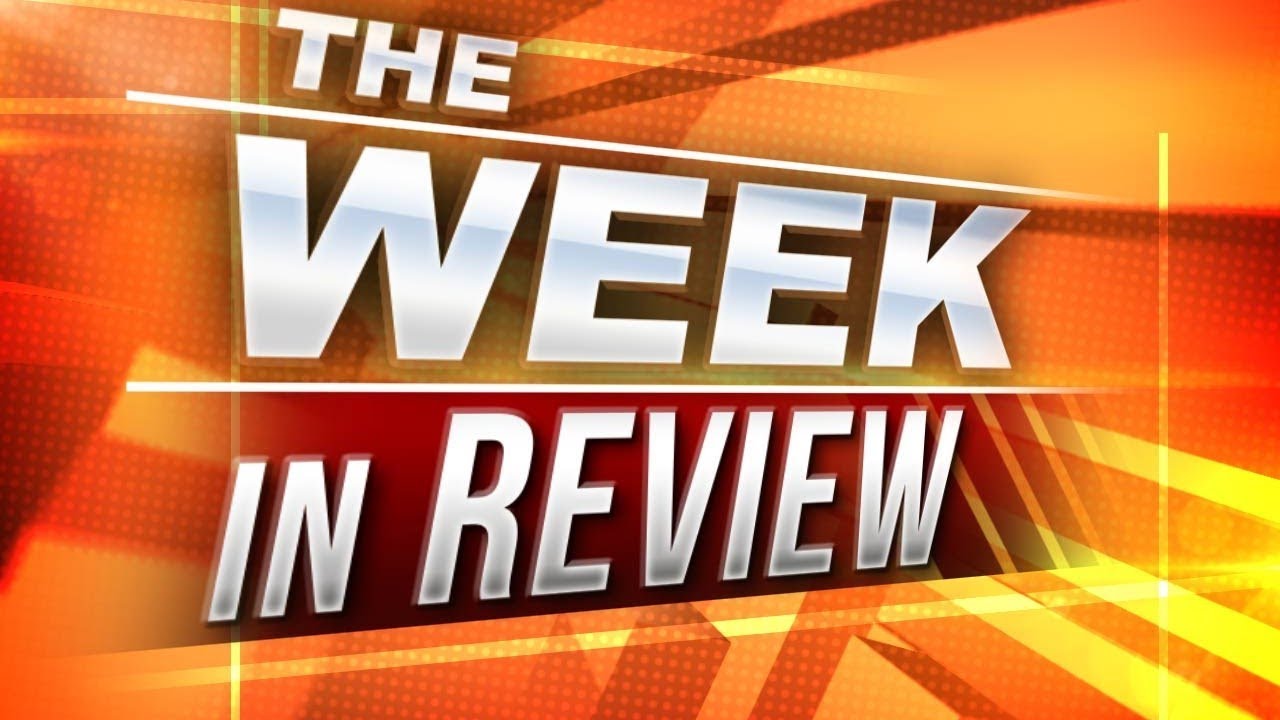Week in Review: Cannabis & Psychedelics Industry Highlights
LOS ANGELES – Investors and operators tuned in closely over the past fortnight as political signals rippled through boardrooms and trading floors, underscoring the sector’s knack for turning headlines into hard dollars. Federal nods to CBD’s role in senior care ignited a swift market lift, while statehouses wrestled with tax hikes and hemp curbs that test the balance between revenue grabs and business viability. Beneath the noise, corporate maneuvers and fresh research painted a picture of resilience, from debt restructurings to breakthrough studies on psychedelics’ healing edge. This edition sifts through the standout developments, weighing their immediate punch against longer-term trajectories for an industry that rewards those who spot patterns amid the churn.
Market Performance & Financial Strategies
President Donald Trump’s Truth Social post championing CBD for Medicare coverage sent shockwaves through Cannabis equities, lifting shares across the board in a display of market sensitivity to policy rhetoric. The AdvisorShares Pure US Cannabis ETF climbed 22% in early trading, while Tilray Brands and Canopy Growth each gained nearly 20%, with trading volumes tripling the monthly average.
This reaction echoes patterns from Trump’s first term, when the 2018 Farm Bill unlocked hemp markets, yet analysts temper enthusiasm by noting that only 40% of such signals yield fiscal changes within six months. The video posted by Trump left EBITDA multiples for MSOs hovering at 6.5x – below historical norms and signaling baked-in doubt. Viridian Capital Advisors pegs this valuation trough as a buying window, given projected 15-20% annual EBITDA growth through 2026, but the real test lies in whether Washington’s words convert to deeds like rescheduling or banking relief. For now, the rally underscores how a single post can redirect billions in sentiment-driven capital, rewarding those who bet on bursts of optimism in an otherwise sidelined sector.
Tilray Brands bolstered the quarter’s financial narrative with fiscal Q1 2026 results showing net income of $1.5 million against last year’s $34.7 million loss, alongside 5% revenue growth to $209.5 million. Adjusted EBITDA hit $10.2 million, up 9%, with Cannabis sales edging higher on 12% gains in Canadian adult-use. Meanwhile, Verano Holdings locked in a $75 million revolving credit facility at SOFR plus 6%, drawing $50 million upfront to refinance pricier debt and freeing equity for Florida expansions now totaling 82 stores. This deal, the largest of its kind for a U.S. operator, highlights lender trust in Verano’s 56% gross margins and operational tweaks. Verano also shifted to digital voting for shareholders amid a Canada Post strike disrupting mailed materials.
Vireo Growth’s $62 million stock-for-notes swap grabbed 86% of Schwazze’s convertible debt at a discount, positioning Vireo for equity conversion without outright control, a shrewd consolidation play in overlapping markets like Minnesota and Ohio. Viridian’s credit report exposes yield gaps here too, with Cresco Labs’ debt trading 400 basis points above Vireo’s despite comparable profiles, offering fixed-income hunters a 150-basis-point edge through maturity if fundamentals hold. These moves reveal a credit landscape favoring disciplined operators, where smart refinancing and targeted acquisitions could widen moats against high-interest headwinds.
Regulatory & Policy Developments
Michigan’s new 24% wholesale Cannabis tax cleared both chambers and landed Governor Gretchen Whitmer’s signature, earmarking $420 million yearly for roads but igniting backlash from operators already grappling with 15% sales dips from oversupply.
Governor Gavin Newsom signed measures reinstating the 15% Cannabis excise tax through 2028 while channeling intoxicating hemp sales exclusively through licensed outlets, a dual stroke aimed at starving the $200 million unregulated hemp sideline. The tax freeze averts a jump to 19%, sparing $100 million in collections but buying time for a legal market clawing back from $1.5 billion peaks amid illicit dominance at 60% share.
Ohio Governor Mike DeWine’s 90-day sales halt on intoxicating hemp products hits shelves October 14, targeting candy-like delta-8 gummies amid a tripling of child poisonings to 994 cases last year. Fines of $500 daily empower seizures, fast-tracking rules to redefine hemp exclusions. The Ohio Hemp Harvesting Association countersued, decrying overreach on a $1 billion sector, but DeWine’s move underscores bipartisan youth-protection priorities, potentially curbing 10-20% of some retailers’ volumes while bolstering Ohio’s nascent adult-use rollout.
Sales, Revenue & Consumer Trends
New York’s Cannabis Control Board surpassed its 50% equity target, awarding 57% of licenses to social equity holders including 43% minority-owned and 31% women-led ventures, channeling billions into historically sidelined communities. This milestone, amid 1,904 total licenses and extensions through 2026, dovetailed with August’s record $214.4 million in sales [up 106% year-over-year across 464 stores], putting the state on track for $2.5-3 billion annually. Flower, vapes, and edibles drove the spike, outpacing mature peers like Colorado, as supply chains solidify under the 2021 MRTA. A federal appeals ruling nixing out-of-state conviction preferences adds wrinkles for future rounds, but the equity framework [bolstered by loans and legal aid] stands as a model, proving inclusive licensing accelerates market velocity without sacrificing compliance.
The MRI-Simmons national survey captures rising engagement, with 31% of adults (82.8 million) using Cannabis in the past six months, and 55% of non-users ready to try under permissive laws. Support for nationwide legalization hit 62%, with 70% eyeing black-market erosion and 74% tax windfalls; 66% demand banking fixes, and 73% affirm medical upsides from CBD stress relief to overall wellness.
Business Expansions & Operational Insights
A whistleblower suit from ex-compliance director Matthew Kalmick accuses Curaleaf of dismissing alerts on Illinois inventory gaps and unlicensed pesticides, triggering a February state shutdown and hinting at diversion risks in a facility already dinged by OSHA. Curaleaf’s silence leaves investors parsing governance, as such exposures could amplify scrutiny on margins already squeezed by 70% wholesale flower price drops since 2022.
Executive Vice Chairman Joseph Lusardi’s automated share sales plan, kicking off January 2026, locks in option exercises with broker oversight to dodge insider pitfalls, a standard governance flex in volatile listings.
The Wine & Spirits Wholesalers of America welcomed CannaBuzz as its first THC beverage associate, granting lobbying access to integrate low-dose hemp drinks into liquor chains amid a 6% spirits volume slide.
International Highlights
Australia’s medicinal Cannabis imports soared to record highs, reflecting clinician confidence and patient demand in a market projected to double by 2028.
Spain’s cabinet cleared a medical framework, confining use to hospitals and paving supervised access for chronic conditions.
Germany’s restrictions on medical Cannabis aim to curb abuse while preserving supply chains, balancing patient needs with oversight.
The EU’s Cannapol toolkit equips member states with adult-use blueprints, from taxation to enforcement, accelerating harmonization.
France’s pesticide ban safeguards cultivation integrity, protecting bee populations vital to outdoor grows.
Thailand’s prime minister recommitted to drug crackdowns, leaving operators in policy limbo despite decriminalization gains.
The UK’s PM Keir Starmer shut down legalization talks, prioritizing enforcement over reform in a stagnant medical scene.
Canopy Growth repurposed its DOJA site for medical-only output in Canada, honing efficiency amid $16 billion industry calls for export strategies.
Psychedelics Sector
Oregon’s psilocybin advisory panel seeks input on service center hours, codifying 6 am to midnight operations to enhance safety in a program serving thousands with 25% session growth.
A review of 20 studies affirms psilocybin’s rapid antidepressant punch for resistant cases, with 67% remission rates enduring years via serotonin pathways, fueling FDA fast-tracks for analogs.
DMT’s stroke recovery promise, slashing infarct sizes 50% in rat models through sigma-1 modulation, sets up Phase 2a trials next summer, spotlighting psychedelics’ neuroprotective edge.
HCN Insight
This fortnight’s headlines paint a sector at inflection: Trump’s CBD nod and stock pops signal investor appetite for reforms, yet Michigan’s tax tussle and California’s hemp clampdown reveal states’ fiscal grip tightening around growth engines. Equity triumphs in New York and surging consumer buy-in nationwide point to a base broadening beyond enthusiasts, while psychedelics edge toward clinic-ready status with psilocybin’s depression breakthroughs and DMT’s stroke shield. Operators who master compliance amid Curaleaf-style pitfalls and seize credit like Verano’s facility will outpace peers. The path demands vigilance [federal whispers must harden into action to unlock banking and rescheduling] but the trajectory favors those building defensible moats now. With 64% of Americans betting on nationwide access by 2030, our industry stands poised to deliver jobs, therapies, and revenues that redefine economic playbooks.
Stay sharp. The next moves will separate builders from spectators.




































